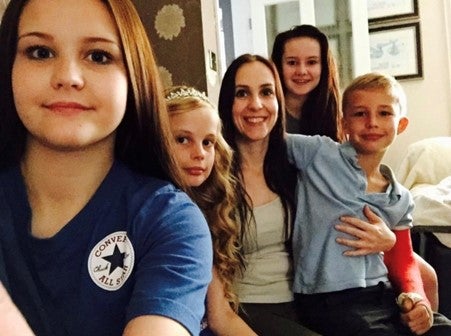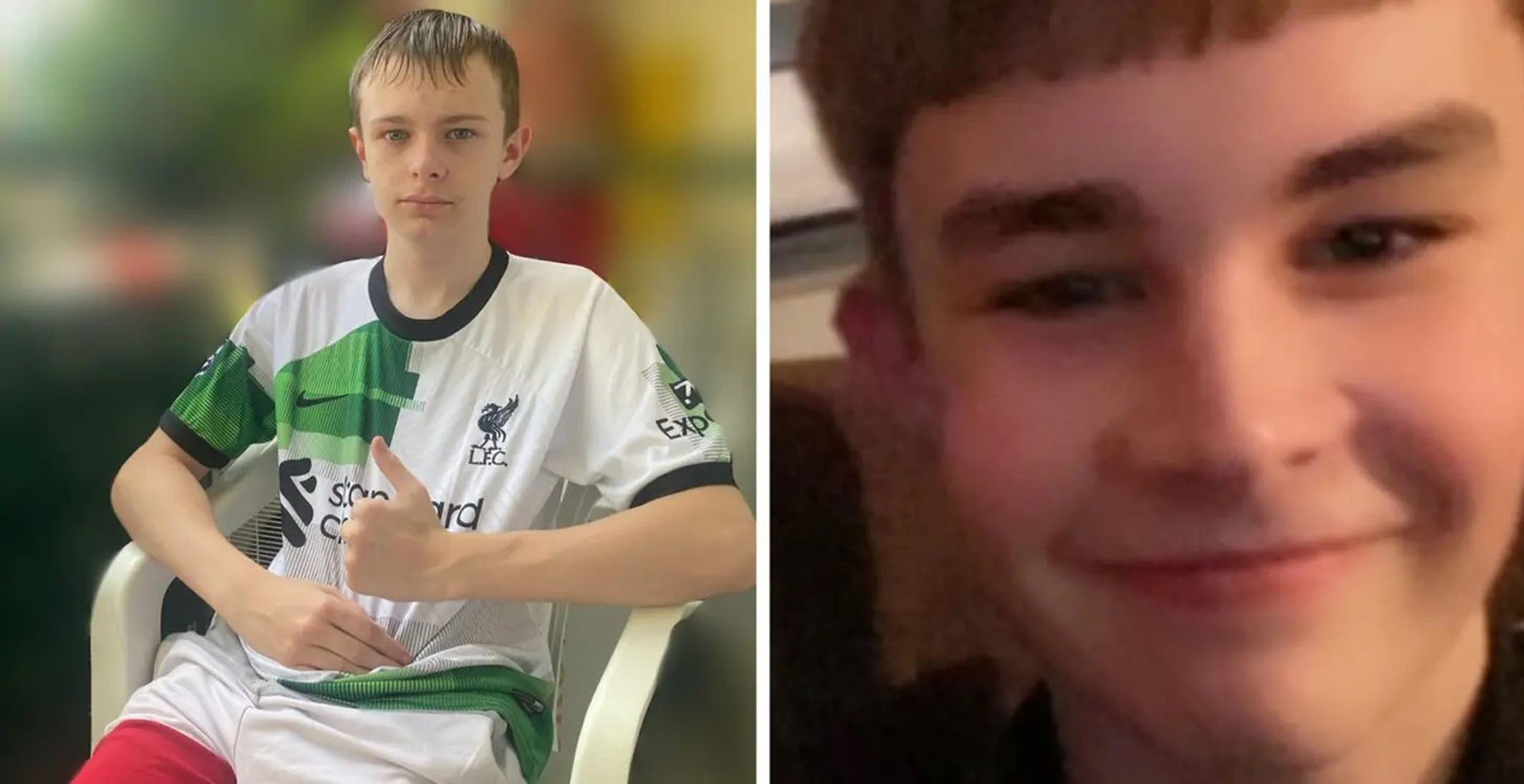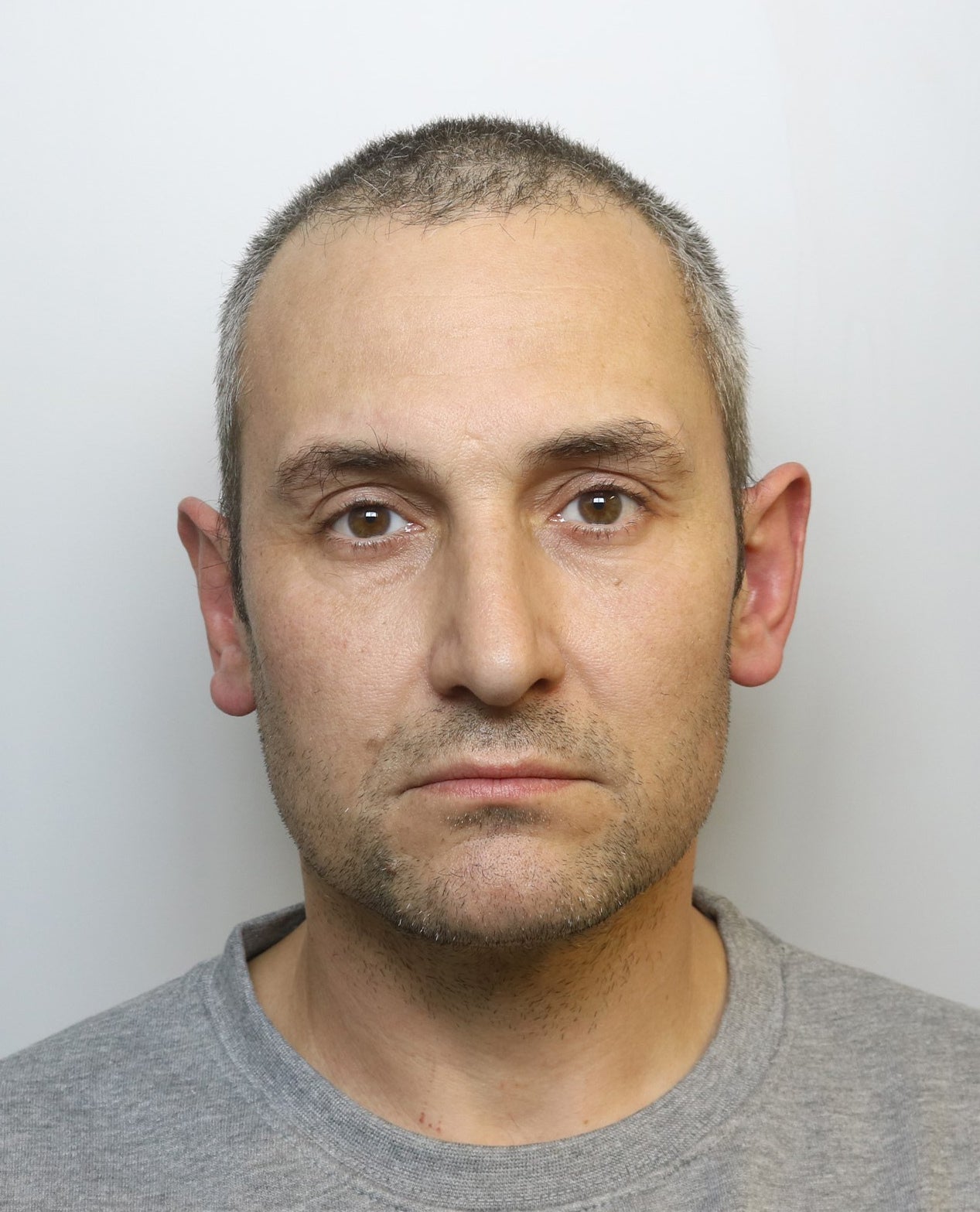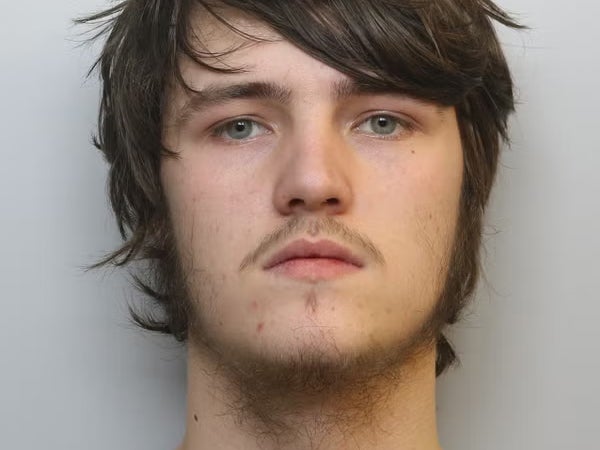The grieving mother of a teenage boy has described the harrowing moment her son died in her arms after a brutal knife attack near their home in Bristol.
Riley Tolliver, 18, Kodishai Wescott, 17, and two other teenagers have been sentenced for the murder of Max Dixon and his best friend Mason Rist, who were stabbed and left to die in the street in the Knowle West area of the city. Tolliver and Wescott received life sentences, while the two teenagers were detained for life.
Speaking before the hearing at Bristol Crown Court on Thursday, Leanne Ekland told how she believed her 16-year-old son Max was in his bedroom playing on his PlayStation before a friend pulled up outside their home, shouting he had been stabbed.
It later emerged that Max had slipped out to meet his friend Mason, 15, to get some food – before the pair were savagely attacked with machetes in a chilling case of mistaken identity.
The friends, who had been close since nursery, had been hunted down by Antony Snook, 45, and the four teenagers after a brick was thrown at a house in a rival area of Bristol.
Recalling the moments her world was turned upside down, Leanne said: “I was up in bed. Max was at home in his bedroom on the PlayStation and we just didn’t think anything of it. Next minute, a car pulled up outside the house and [there] was shouting up at windows, saying Max had been stabbed.
“I said: ‘No, he’s not – he’s in bed.’”
But, on being driven to the scene, the brutal nature of the situation quickly became clear to Leanne.
“[It hit me] when I was allowed to sit with him on the floor because he was so pale.
“I was sat down on the floor and the paramedics were cutting off his clothes and I just kept thinking: ‘He’s going to be so annoyed with you for cutting his coat off, because it was his Christmas coat.’ And that was all that was going through my mind.

“It was so hectic. I just needed to make sure Max knew I was there with him.... he knew I was there.”
Less than two hours later, at Bristol Children’s Hospital, Max and Mason were pronounced dead within 15 minutes of each other.
CCTV played at the trial at Bristol Crown Court – in which Snook and all four teenagers were found guilty of murder – showed the attack with machetes took just 33 seconds.
The six-week trial heard how the violence was triggered by the brick attack on a house in Hartcliffe a mile from Max’s home, with the masked teenagers driven by Snook on a revenge mission to Knowle West.
After the attack, one of the murderers was seen on CCTV eating at McDonald’s.
Snook was jailed for a minimum of 38 years. On Thursday, Tolliver, 18, Wescott, 17, and two teenage boys – who cannot be named for legal reasons – also received their sentences.
Tolliver and Wescott will serve minimum terms of 23 years, the 16-year-old boy will serve at least 18 years, and the 15-year-old will serve at least 15 years.
For the families of Max and Mason, the sentences may come as a relief, but they still won’t fill the holes left in their lives.

The boys’ funerals in March were crowded events with the local community – churches, football clubs and schools – coming together to grieve. Championship football club Bristol City also paid its respects during a game.
Leanne said: “When I see Max and Mason on the CCTV [moments before they were attacked], when I see them meet up with each other, I look at it and I can see them smiling.
“What is sad is those boys don’t know what’s going to happen to them when they walk out that gate. They must have been petrified because they were just going to get some food. They have done nothing wrong, they went out to get some food.”


She added: “Max didn’t just die, he was brutally murdered, and there is no reason for him to have been, so there’s no answers [as to] why. It’s hard to try and piece things together to move on.”
Leanne said she now wants to make a difference. She has helped set up a Max Dixon Foundation to distribute portable bleed kits across the region.
She has also visited local schools to spread the anti-knife crime message to young people.
She said: “It starts at home with the parents, I think there are a lot of parents knowing what they [their children] are getting up to and know what they are carrying. It starts at home before we go anywhere else.”
Regarding recent changes in the law banning zombie-style knives and machetes, Leanne is hopeful the situation can improve, but is also realistic.
She said: “Sadly I don’t think it [knife crime] will disappear for good, but [I’m] hoping it will improve.”
As for those about to begin their jail sentences, Leanne hopes they one day understand the impact of their actions. “I don’t think they really understand yet,” she said.







